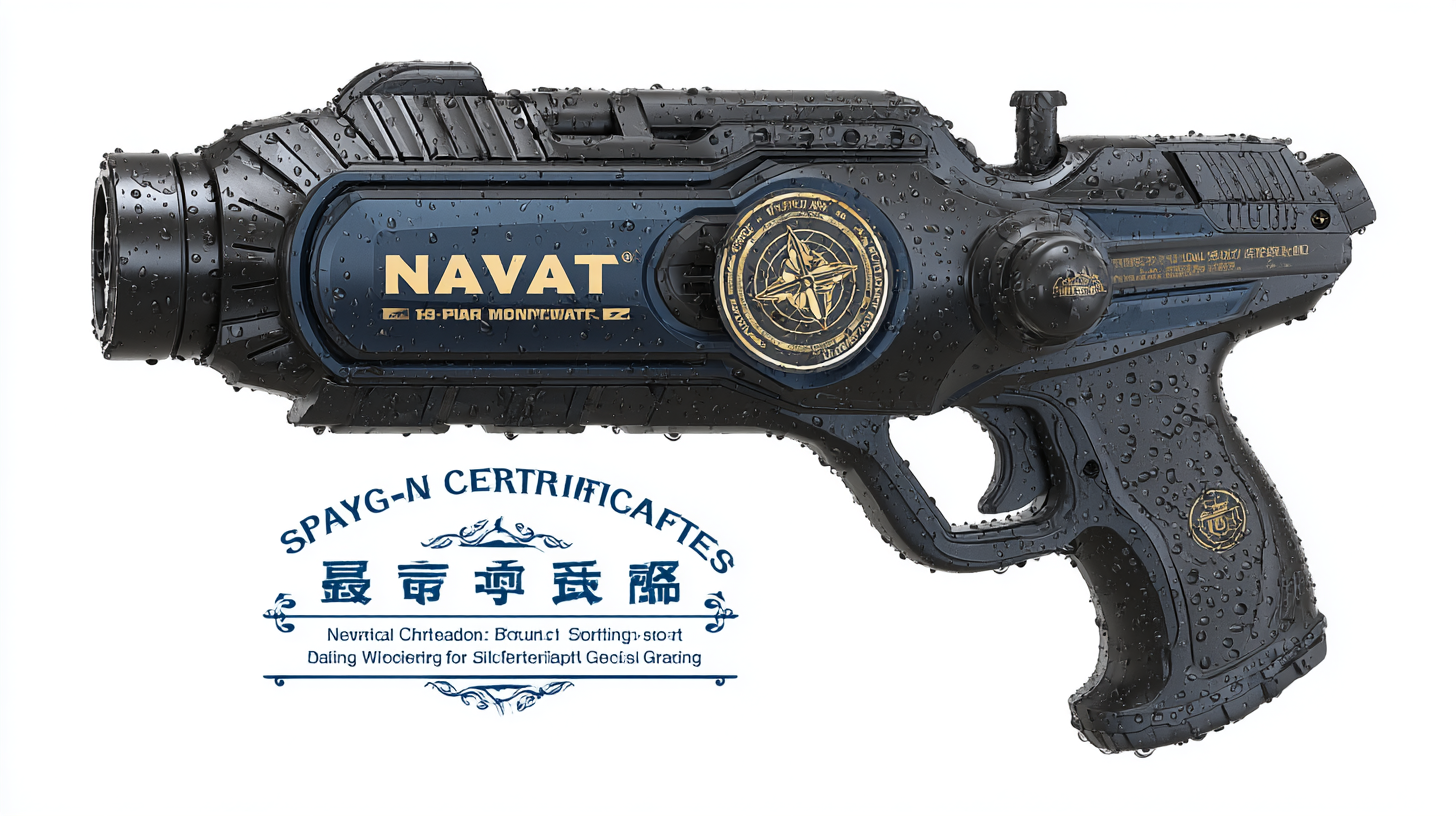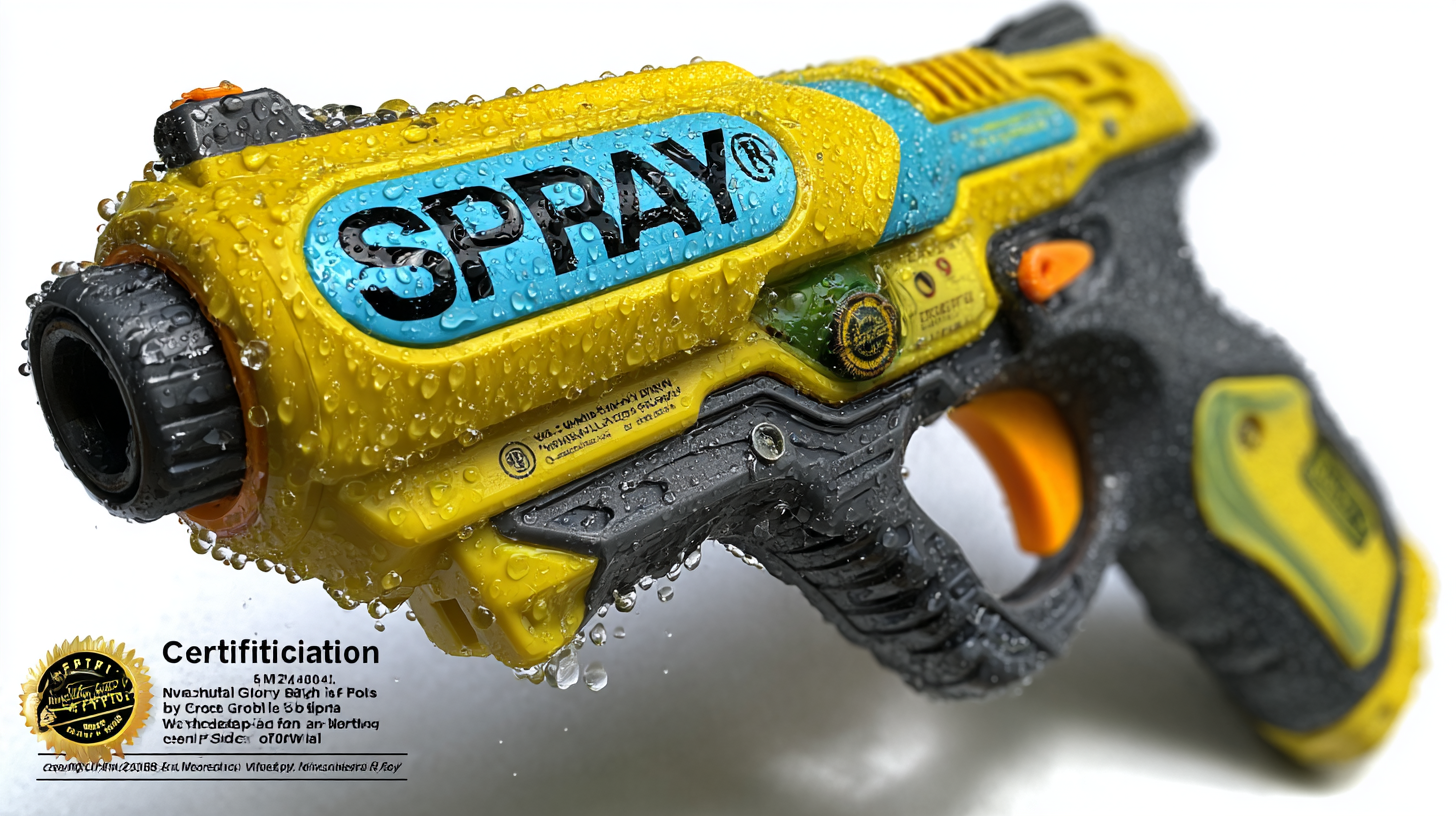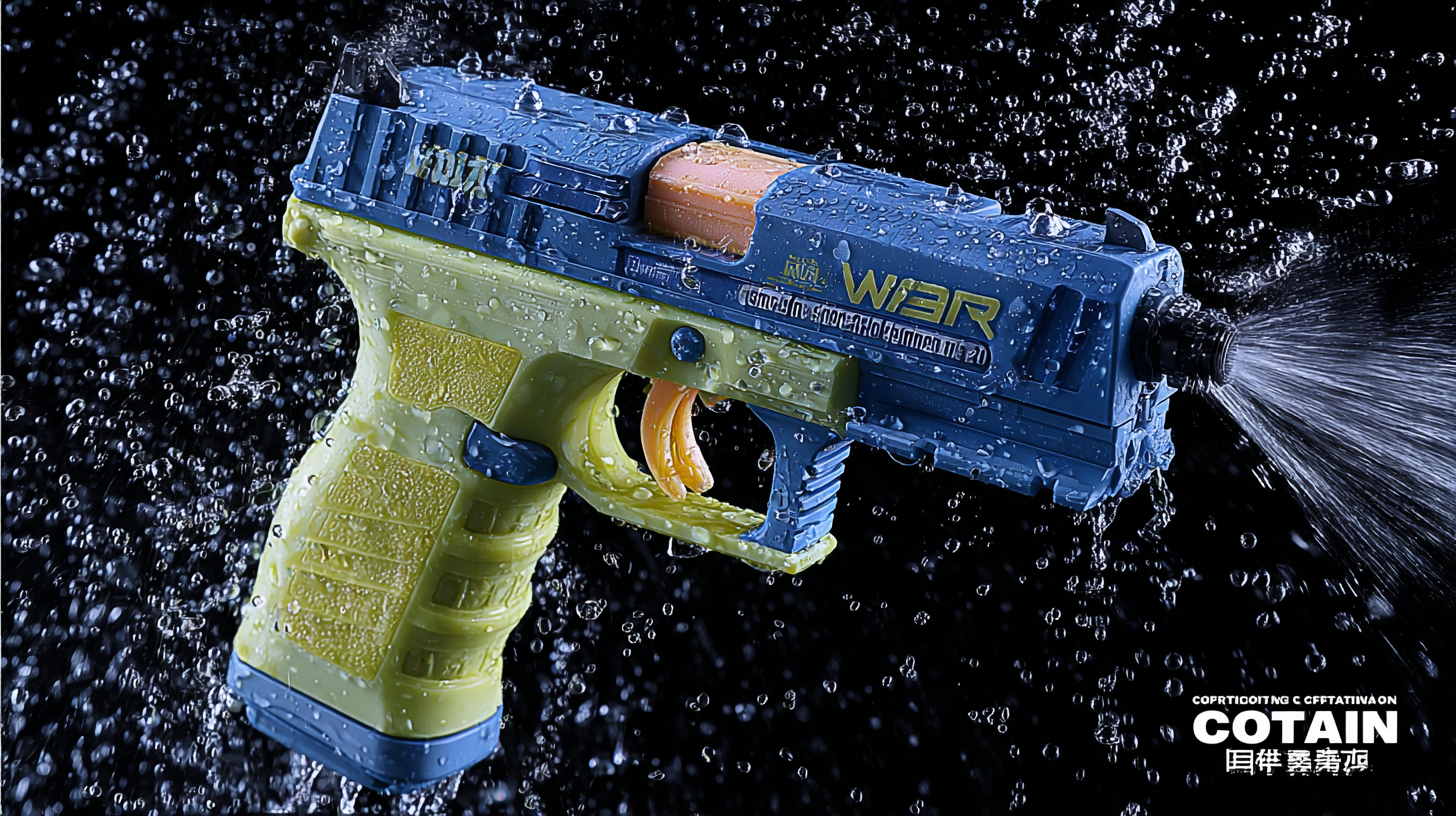In recent years, the global market for spray water guns has witnessed a significant surge, driven by increasing consumer demand for outdoor recreational products and innovative designs. According to a report by Market Research Future, the spray water gun segment is projected to grow at a CAGR of over 5% from 2021 to 2026, highlighting the potential for exporters and manufacturers to capitalize on this booming trend. However, navigating the complexities surrounding export certifications is crucial for international buyers aiming to meet regulatory requirements and ensure product safety. This comprehensive guide delves into the essential strategies that can empower global buyers to successfully navigate the intricacies of obtaining necessary certifications for spray water guns, ultimately providing invaluable insights into enhancing market entry and consumer trust. As the industry continues to evolve, understanding these certifications will be key to gaining a competitive edge and ensuring compliance with varying international standards.

When considering export certifications for spray water guns, buyers must navigate a complex landscape of regulations and standards specific to their target markets. One primary consideration is compliance with safety standards, which vary from country to country. Buyers should familiarize themselves with relevant certifications such as CE marking in Europe, ISO standards, and specific national regulations that ensure products meet safety, performance, and environmental requirements. Understanding these standards not only helps in avoiding legal complications but also builds consumer trust.
Another significant factor is the environmental certifications, which have become increasingly important in global trade. Buyers need to ensure that spray water guns comply with regulations regarding materials used, such as the restriction of hazardous substances (RoHS) and adherence to waste management practices. With the rising emphasis on sustainability, obtaining certifications that highlight a product's eco-friendliness can differentiate a brand in the competitive market. Additionally, collaborating with experienced exporters who are well-versed in these certifications can streamline the process and facilitate smoother entries into international markets.
As the global market for spray water guns continues to evolve, emerging technologies are set to redefine their design and functionality by 2025. A recent report from MarketsandMarkets predicts that the global water gun market will grow from $1.2 billion in 2023 to over $1.8 billion by 2025, driven by advancements in materials and smart technology integration. Innovative materials, like lightweight polymers and eco-friendly components, are enhancing durability and sustainability, appealing to the environmentally-conscious consumer.

Moreover, the integration of smart technology is transforming traditional spray water guns into multifunctional devices. Features such as Bluetooth connectivity and app-controlled settings are expected to rise, according to a study by Grand View Research. These technological advancements not only improve user experience—allowing for customizable spray patterns and pressure settings—but also open up new avenues for water conservation. Through these developments, manufacturers can cater to a tech-savvy market while promoting responsible water use. As buyers navigate export certifications, they should prioritize suppliers who are adapting to these trends, ensuring they invest in products that meet future demands.
When purchasing the best spray water guns for export, understanding the required certifications is crucial for global buyers. These certifications ensure that the products meet safety, environmental, and quality standards in various international markets. The process can seem daunting, but by following essential steps, buyers can streamline their efforts to obtain the necessary documentation.
**Tip 1:** Start by researching the specific certifications required in your target market. Different countries have varying regulatory frameworks, so identifying the most pertinent certifications—such as CE marking in Europe or ASTM compliance in the United States—will help you avoid costly delays.
**Tip 2:** Partner with reliable manufacturers who have experience in export compliance. They can provide you with essential documentation and guidance during the certification process, ensuring your product meets all necessary standards from the outset.
**Tip 3:** Consider hiring a professional consultancy if the process appears overwhelming. Experts in export certification can help navigate complex regulations and provide tailored advice, helping you focus on your core business while ensuring compliance with international laws.
| Certification Type | Issuing Authority | Required Documents | Processing Time | Cost Estimate | Validity Period |
|---|---|---|---|---|---|
| CE Marking | European Union | Technical File, Declaration of Conformity | 4-6 weeks | €1,000 - €2,500 | Indefinite (as long as compliance is maintained) |
| ISO 9001 Certification | International Organization for Standardization | Quality Manual, Management Review | 3-6 months | $5,000 - $10,000 | 3 years (subject to surveillance audits) |
| RoHS Compliance | European Union | Test Reports, Compliance Statement | 2-4 weeks | €500 - €1,200 | Indefinite (subject to changes in legislation) |
| FCC Certification | Federal Communications Commission (USA) | Test Reports, User Manual | 2-8 weeks | $1,000 - $3,000 | Indefinite (as long as compliance is maintained) |
| BIS Certification | Bureau of Indian Standards | Test Reports, Application Form | 4-12 weeks | ₹15,000 - ₹25,000 | 5 years |
When considering the purchase of spray water guns for global distribution, understanding regional compliance standards is crucial for ensuring product safety and market acceptance. Different countries and regions have specific regulations that govern the materials, design, and performance of these products. For instance, in the European Union, CE marking indicates conformity with health, safety, and environmental protection standards, which is essential for market entry. Buyers must familiarize themselves with these requirements to avoid legal issues and product recalls.

Beyond certifications, environmental regulations play a significant role in the spray water gun market. In regions like North America, compliance with the Environmental Protection Agency's (EPA) guidelines on water usage and chemical exposure is necessary. Manufacturers and exporters need to ensure that their products not only meet safety standards but also adhere to sustainability practices. This might include using non-toxic materials or designing water-efficient mechanisms. By understanding these compliance standards, global buyers can make informed decisions that align with both regulatory requirements and consumer expectations, ultimately leading to successful market entry and customer satisfaction.
When selecting the best spray water gun for international markets, it’s essential to consider both functionality and consumer preferences. Recent market trends indicate a growing demand for innovative water toys that not only provide hours of fun but also ensure affordability. According to industry reports, the global water gun market is projected to grow at a CAGR of 5.2% through 2025, indicating a robust interest in high-performance products that cater to varying age groups.
One key factor to keep in mind is the balance between price and features. Consumers are seeking sophisticated designs with advanced water-dispensing mechanisms while remaining sensitive to pricing. The Hydro Frenzy stands out in this landscape, showcasing that high quality does not always equate to high prices.
Additionally, understanding local regulations regarding safety certifications and materials used can greatly enhance your product's appeal in different markets. Buyers should prioritize tools and features that not only meet domestic safety standards but also align with the increasing eco-friendly consumer trends, ensuring they capture a wider audience globally.
